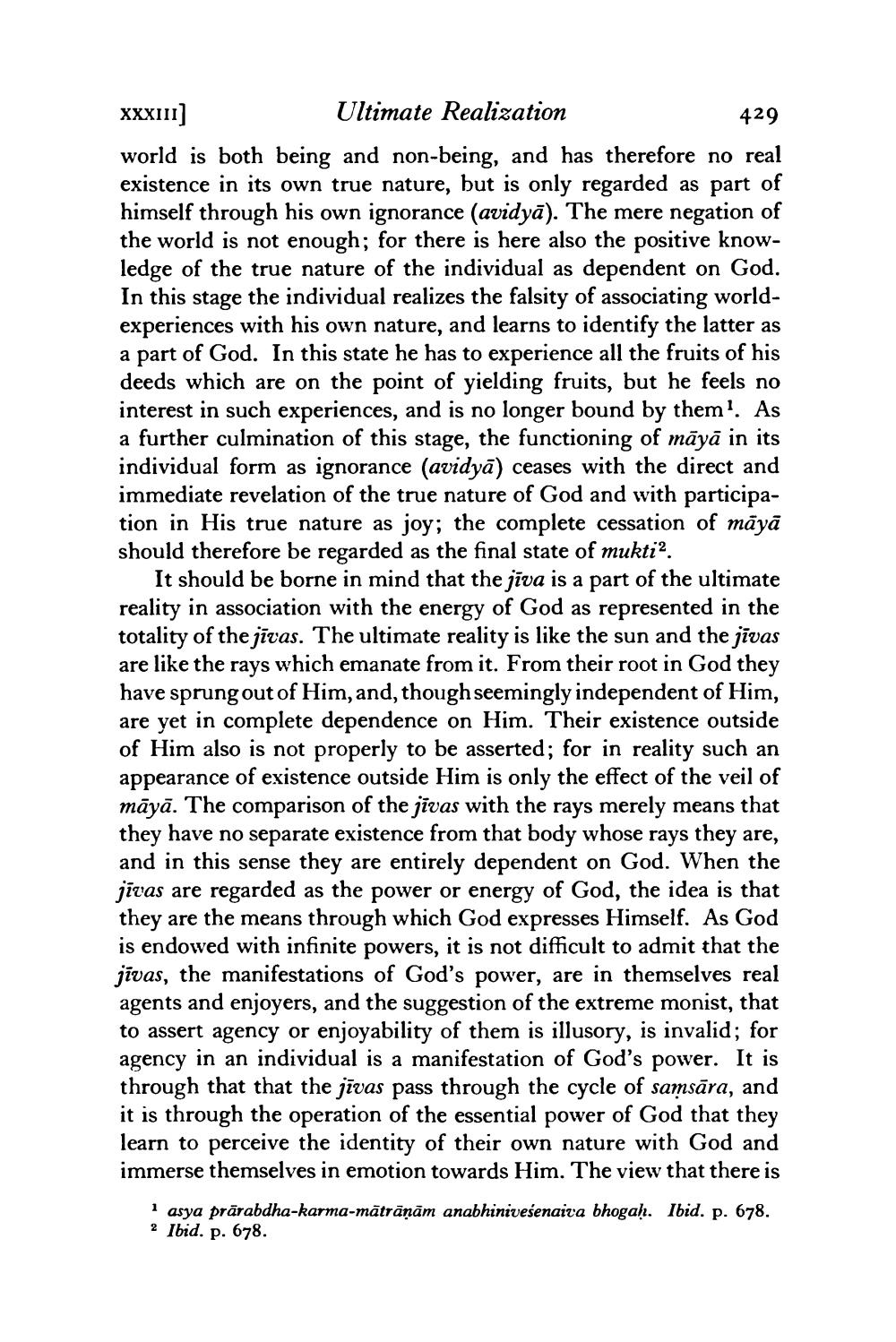________________
XXXII] Ultimate Realization
429 world is both being and non-being, and has therefore no real existence in its own true nature, but is only regarded as part of himself through his own ignorance (avidyā). The mere negation of the world is not enough; for there is here also the positive knowledge of the true nature of the individual as dependent on God. In this stage the individual realizes the falsity of associating worldexperiences with his own nature, and learns to identify the latter as a part of God. In this state he has to experience all the fruits of his deeds which are on the point of yielding fruits, but he feels no interest in such experiences, and is no longer bound by them?. As a further culmination of this stage, the functioning of māyā in its individual form as ignorance (avidyā) ceases with the direct and immediate revelation of the true nature of God and with participation in His true nature as joy; the complete cessation of māyā should therefore be regarded as the final state of mukti?.
It should be borne in mind that the jīva is a part of the ultimate reality in association with the energy of God as represented in the totality of the jīvas. The ultimate reality is like the sun and the jīvas are like the rays which emanate from it. From their root in God they have sprungout of Him, and, though seemingly independent of Him, are yet in complete dependence on Him. Their existence outside of Him also is not properly to be asserted; for in reality such an appearance of existence outside Him is only the effect of the veil of māyā. The comparison of the jīvas with the rays merely means that they have no separate existence from that body whose rays they are, and in this sense they are entirely dependent on God. When the jīvas are regarded as the power or energy of God, the idea is that they are the means through which God expresses Himself. As God is endowed with infinite powers, it is not difficult to admit that the jīvas, the manifestations of God's power, are in themselves real agents and enjoyers, and the suggestion of the extreme monist, that to assert agency or enjoyability of them is illusory, is invalid; for agency in an individual is a manifestation of God's power. It is through that that the jīvas pass through the cycle of samsāra, and it is through the operation of the essential power of God that they learn to perceive the identity of their own nature with God and immerse themselves in emotion towards Him. The view that there is
1 asya prārabdha-karma-mātrāņām anabhiniveśenaira bhogah. Ibid. p. 678. 2 Ibid. p. 678.




